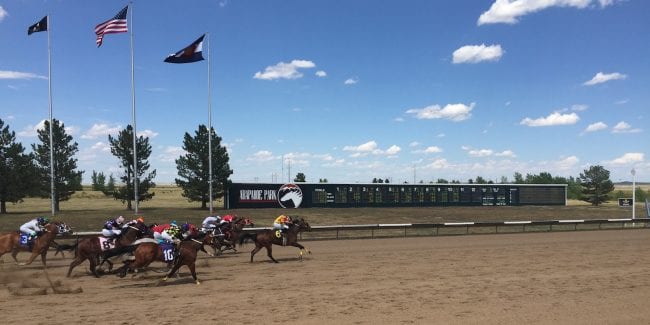Colorado Gambling Laws
These copies of the rules are provided as a convenience to the public by the Colorado Department of Revenue and do not constitute an official publication. The official version of these rules is published by the Office of the Secretary of State in the Colorado Code of Regulations and may be obtained from the Colorado Secretary of State's website.
Changes to Colorado Gaming and Sports Betting Rules may be proposed by the public, the gaming or sports betting industry, the Colorado Limited Gaming Control Commission (Commission), or from within the Division of Gaming (Division). Proposed Rule changes are forwarded to a Division subject matter expert to analyze and to draft the proposed language with which to begin the formal rulemaking process.
Once the proposed language has been developed, the proposed Rules are published on the Division web page and a rulemaking workshop is scheduled. Stakeholders are invited to attend the workshop and are encouraged to provide comment and concerns regarding the proposed Rule language. Occasionally comments are solicited via email to stakeholders in lieu of an in person workshop.
The Division then files a Notice of Formal Rulemaking with the Secretary of State's Office and the Dept. of Regulatory Affairs. No sooner than 30 days after the Notice is filed, the proposed Rules are heard at a public hearing during a meeting of the Gaming Commission. Stakeholders are welcome to attend rulemaking hearings at the monthly Commission meetings, where they may give testimony regarding proposed Rule changes. If the Commission votes to adopt the proposed changes they would become effective approximately 45 to 60 days after adoption. Adopted Rules are posted on the Division web page.

- Colorado law prohibits the transmission or reception of gambling information by any means.” It then cites reasons for this law. Unlawful Internet Gambling Enforcement Act (UIGEA) of 2006 prohibits.
- Colorado has relaxed gambling laws, in part because the state defers to county and municipal law whenit comes to gaming regulation. The easiest way to understand a state’s policies toward gambling is to start with their definition of theterm. According to Section 18-10-101 of the Colorado criminal code, “Gambling” refers to the act of.
During the October 15, 2020 meeting of the Colorado Limited Gaming Control Commission, the Commission approved changes to Sports Betting Rule 1: General Rules and Regulations and Sports Betting Rule 6: Rights and Duties of Licensees. These updated rules became effective on December 15, 2020.
Gambling laws in Colorado include many types of betting. Live horse racing is allowed if cash is put into a pari-mutuel pool. Racing sites and taverns permit off-track wagering. In 2014, greyhound was outlawed in the state when the last track was shut down. However, greyhounds allow off-track wagering.
Code Section
18-10-101 et seq.; 12-60-101 et seq.; 12-47.1-101 et seq.


Gambling
Risking money or any other thing of value for gain contingent in whole or part upon lot, chance, or the happening or outcome of an event over which the person taking a risk has no control.
Gambling Laws By State
Horse Racing/Off-Track Betting
Effective April 21, 2003, off-track simulcasts permitted. Out-of-state simulcasts permitted. Parimutuel wagering only
Dog Racing/Off-Track Betting
Greyhound races permitted; off-track simulcasts permitted. Special event greyhound race simulcasts from out of state permitted. Parimutuel wagering only
Colorado Bingo Law


Colorado Gaming Regulations
Casinos Allowed?
Limited: slot machines, poker and black jack with maximum single bet of $5. Only allowed in cities of Central, Black Hawk, and Cripple Creek. Indian reservation casinos allowed
Colorado Gambling Laws Age
Other Kinds of Gambling-Related Activities Allowed or Banned
Election wagers banned; gaming for charitable organizations allowed. Social gambling allowed. Bingo and raffles regulated by the secretary of state